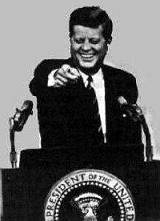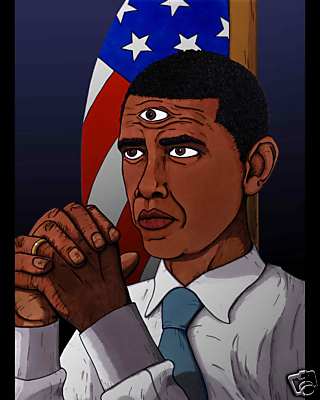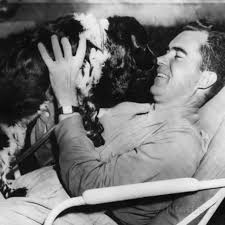New York Times; February 5, 1955
WHIP, KIFE SHOWN AS “COMICS” LURES
Books No Better Under Code, Psychiatrist Tells State Investigating Committee
INDUSTRY “CZAR” REPLIES
“Can’t Build Rome in a Day,” Says Murphy, and Promises Improvement Shortly
by Emma Harrison
A well-known psychiatrist brandished a bull whip before a comic books hearing yesterday. He said he had obtained it through an advertisement published in a magazine bearing the seal of approval of the new industry Code Authority.
The testimony was given by Dr. Fredric Wertham before the Joint State Legislative Committee, which is studying comic books. His assertion was challenged by Charles Murphy, code administrator. Mr. Murphy, a former city magistrate, had previously told the committee that advertisements for whips and knives had been banned from the books he approved.
Dr. Wertham repeated his statement under oath administrated by Assemblyman James A. FitzPatrick, chairman of the one-day hearing held at the Bar Association Building. This follwed Mr. Murphy’s challenge of the psychiatrist’s statement that he had clipped an advertising coupon from an approved book dated March 1955. Dr. Wertham did not produce the book but said he would send it to the committee.
Dr. Wertham cited the whip to bolster his contention that the comic books had not improved under the code. He used it also to support his belief that Brooklyn’s recently convicted teenage killers had been directly influenced by comic books.
The psychiatrist, who examined Jack Koslow, one of the killers, said there was not one crime they committed that was not described in detail in comic books. He cited the whipping, burning, drowning, and beating tortures used by the boys. He also produced a knife that he said he had obtained through a coupon in a comic book.
Mr. Murphy said he would like to know where the advertisement appeared. He assured the committee that he “didn’t recall of any such ad going through” and that had it been submitted to him he would not have approved it. Mr. Murphy then prodcued a pocket book that he said whould be “included in the ‘how to do it’ books” describing violence in detail.
He produced a reprint of Dr. Wertham’s book “The Show of Violence,” and asked that it be put on the record.
“It’s outrageous,” he shouted before Mr. FitzPatrick cut off the argument.
Police Commissioner Francis W. H. Adams testified that his department saw a “direct relationship between [published] obscenity and lewdness and juvenile crime.”
He asked the committee to consider more laws to enable the police to fight effectively against obscene books and pictures.
In the morning session, Mr. FitzPatrick presented a display of approved books. He pointed out where the committee considered “excessive Violence” still existed.
Closely questioned by Mr. FitzPatrick, Mr. Murphy said he “couldn’t destroy a business overnight.” He said it was a “process of education” of the comic book industry.
“We won’t have this by April or May,” Mr. Murphy promised. “You can’t build Rome in a day. Give me a little understanding and realize we are in the growing-up process.”
……………………..
February 13, 1955 New York Times
ADS FOR WEAPONS IN COMICS VERIFIED
Murphy Says He Has Ordered Them Barred in 47 Books His Office Had Approved
Stricter Curbs Sought
Head of Joint Legislative Unit Charges Material Has Bearing On Delinquency
A psychiatrist’s contention that bull whips and throwing knives were obtainable through comic books approved by the industry’s new code authority was substantiated on two fronts yesterday.
Charles F. Murphy, code administrator, revealed that his office had found advertisements for catalouges containing such weapons in forty-seven books bearing his seal of approval, and that he had ordered the ads discontinued.
From his office in Plattsburgh, NY, State Assemblyman James A. FitzPatrick, chairman of the Joint Legislative Committee studying the publication of comic books, said that the psychiatrist, Dr. Fredric Wertham, had verified his testimony made before the committee last week here. […]
“We find that these articles are advertised along with other novelties,” he reported. “We further find that the catalouge obtainable through the advertisment has on its cover a large bull whip.”
The Assemblyman, whose committee will present legislation within two weeks based on its year’s findings in the study of pocket books, comic books, obscene pictures, picture books, radio and television, said that his committee was dissatisfied with other findings on the comics.
“We have also found in our independent examination of books bearing the seal that violence and brutality continue to be portrayed to an intolerable degree.” He added that the committee was in the midst of its final report to be presented to the Legislature and expects to introduce “new and stricter legislation.”
He said the committee had found the newsstands of the state flooded with books and publications, including comic books, full of “horror, terror, brutality, and perversion.”
“It is our considered opinion that this material has a direct bearing upon the increase in juvenile delinquency,” he asserted. “We see no reason why those who persist in exploiting obscenity, vulgarity, brutality, and sex should be permitted to do so at the price of the welfare of the children of this state.”
Following the sending of telegrams forbidding publication of the catalogue advertisements to the twenty-nine publishers who comprise the Comic Magazine Association of America, Inc., Mr. Murphy said its publication had been an oversight by his office.
He said that in the advertisments of the Johnson Smith Company of Detroit the whips and knives were listed in small print among numerous other “novelties.”
“You need a magnifying glass to read it,” he said, adding that he felt the inclusion of the advertisments by two of the twenty-nine publishers had been an oversight rather than an attempt by them to circumvent code regulations against such advertising.
The former city magistrate who took over his job as “czar” of the comic books last October said this was another example of the “growing up” process of his office.
“Seventy per cent of the material is out,” he declared. “It’s just a question now of refining it.”
…………………..
New York Times, February 1, 1956
WERTHAM SCORES CITY YOUTH BOARD
Psychiatrist Also Denounces Crime Comics in Talk at Urban Episcopal Meeting
[…]
The psychiatrist said that most of the reasons assigned to the rise in delinquency — emotional disorders, broken homes, hostility — were “all cliches, alibis, and rationalizations.”
He singled out crime comic books as the worst offender. Fifteen years ago, he said, these books began their meteroric circulation rise. Since then, Dr. Wertham observed, there has been a parallel rise in murder by children and the youthful use of extortion.
He said children extort quarters from their playmates with knives. Such episodes are repeated “over and over again in millions and millions of comic books,” he told the conference.
……………………….
I wish I could post the image found in the New York Times on December 29, 1954 of Charles Murphy standing before a blown-up giant “Before” and “After” panel of how the Comics Code cleaned up an image. The “Before” features who I suspose to be the detective declaring to a ghoulish looking woman (think Graham Ingels) “There Must Be Someone More Mean and Heartless Even than you, and someday you’ll get yours, Sarah Harper!” The After Panel: the ghoulish woman (Sarah Harper) is completely cleaned up, and looks like… an ordinary woman. I suspect that changes the story a tad.




